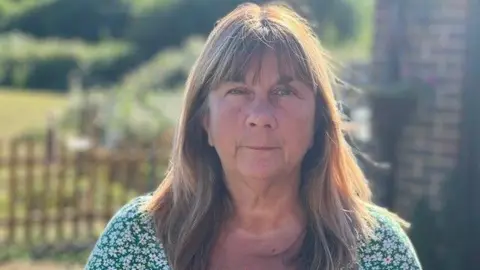The tragic death of Geraldine Gibson, a 79-year-old woman, has prompted a discussion about driving regulations for older individuals in the UK. Her daughter, Claire Eady, firmly believes that if the current driving laws for older drivers were more stringent, her mother might still be alive. The incident occurred last summer when Mrs. Gibson pulled out into oncoming traffic near their home in Cornwall, resulting in a fatal crash. This heart-wrenching loss has ignited calls for reform, highlighting the inadequacies surrounding regulations for drivers over the age of 70.
Mrs. Eady articulated her disbelief at having to come to terms with the loss of her mother, stating “I never thought I would have to say the words ‘my mum’s been killed in a car crash’.” She criticized the regulations for older drivers, describing them as “unsafe” and “inadequate,” asserting that they require a comprehensive review. Currently, in the UK, there is no upper age limit for driving, leading to approximately 500 license holders who are between 100 to 108 years old still on the roads. In response to this issue, the government has pledged to enhance road safety measures.
The details surrounding Mrs. Gibson’s death reveal that she was attempting to cross the A30 near Plusha, Launceston, to meet a friend when she collided with another vehicle. An inquest into the accident disclosed that the other driver, who sustained minor injuries, could not have prevented the crash. Following the hearing, it became apparent that the junction had been modified after previous incidents, underscoring the potentially dangerous nature of this road. Mrs. Eady suspects that her mother’s age was a significant factor in the incident, mentioning that her mother had difficulties maneuvering her vehicle and had previously faced a near-collision due to her declining condition.
Mrs. Eady expressed concerns that medical conditions linked to aging—such as arthritis and the effects of a prior stroke—might have impaired her mother’s decision-making abilities while driving. She pointed out the legal responsibility of drivers to inform the Driver and Vehicle Licensing Authority (DVLA) about their medical issues but believes that relying solely on individuals to self-report is inadequate. Many elderly drivers, she claims, may struggle to acknowledge their limitations, particularly because driving often remains their primary means of mobility. Consequently, she advocates for mandatory medical assessments and a legal obligation for healthcare professionals to report any concerns regarding a patient’s fitness to drive.
The broader statistics surrounding older drivers are concerning, as they represent approximately 14% of all licensed drivers but account for a disproportionate 25% of fatalities on the roads. The situation is exacerbated by the demographic trend of an aging population; those aged over 70 are increasing in number, with the DVLA reporting an annual rise of around 200,000. This raises questions about how to ensure safety for both older drivers and the general public.
Rob Heard from the Older Drivers Forum emphasized that while the vast majority of older drivers possess experience, they are often more vulnerable in traffic incidents due to their physical frailty. The forum advocates for mandatory medical assessments and encourages family members to assist in evaluating the driving capabilities of their elderly relatives.
The government is currently reviewing the existing legislation governing driver licensing for individuals with medical conditions, aiming to enhance safety protocols. Sensitizing the elderly community to their legal obligations, particularly relating to self-reporting, is crucial. NHS guidelines suggest regular eye tests, and drivers are expected to notify the DVLA of any health issues that may impede their driving skills.
In light of these tragic events and the emerging discussions, it is clear that profound changes are needed in addressing the safety of older drivers. Implementing more rigorous checks, offering support and education for elderly drivers, and creating a system that responsibly monitors their fitness to drive could potentially prevent future tragedies similar to those experienced by the families of Mrs. Gibson and Mrs. Nias.












